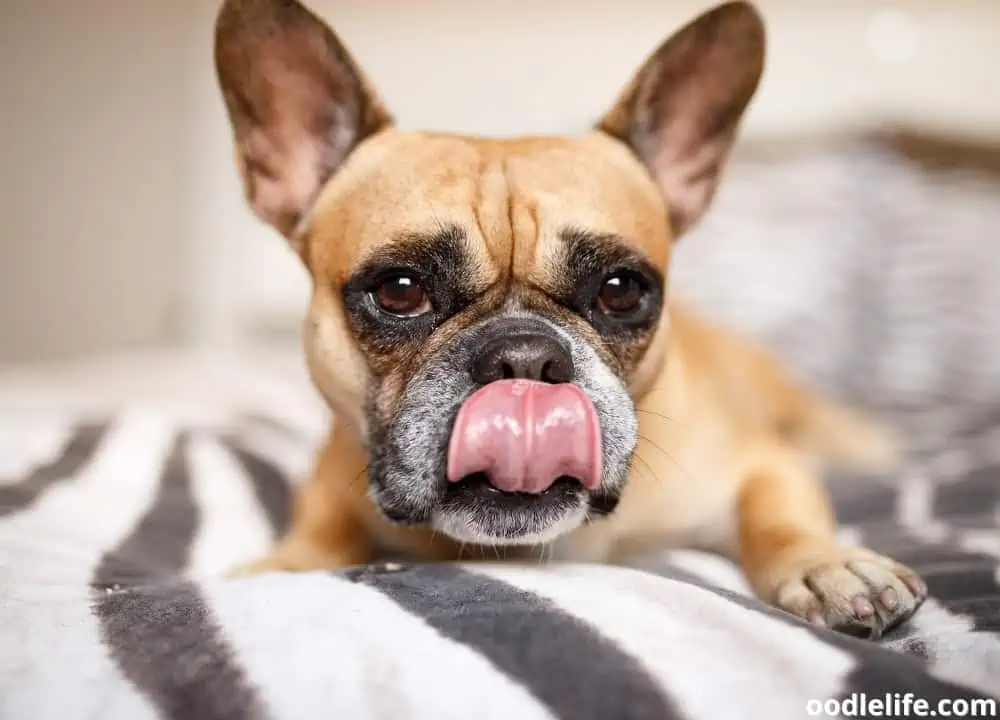Why Do Dogs Lick Blankets?
After a hard day’s work, you trudge on home and collapse in your bed in exhaustion, only to realize what the heck?! Your bed is damp!
Don’t panic. It is unlikely that your house-trained dog made an “oopsie” in your bed, but more likely that your pooch missed you and decided to give your bedding a bath.
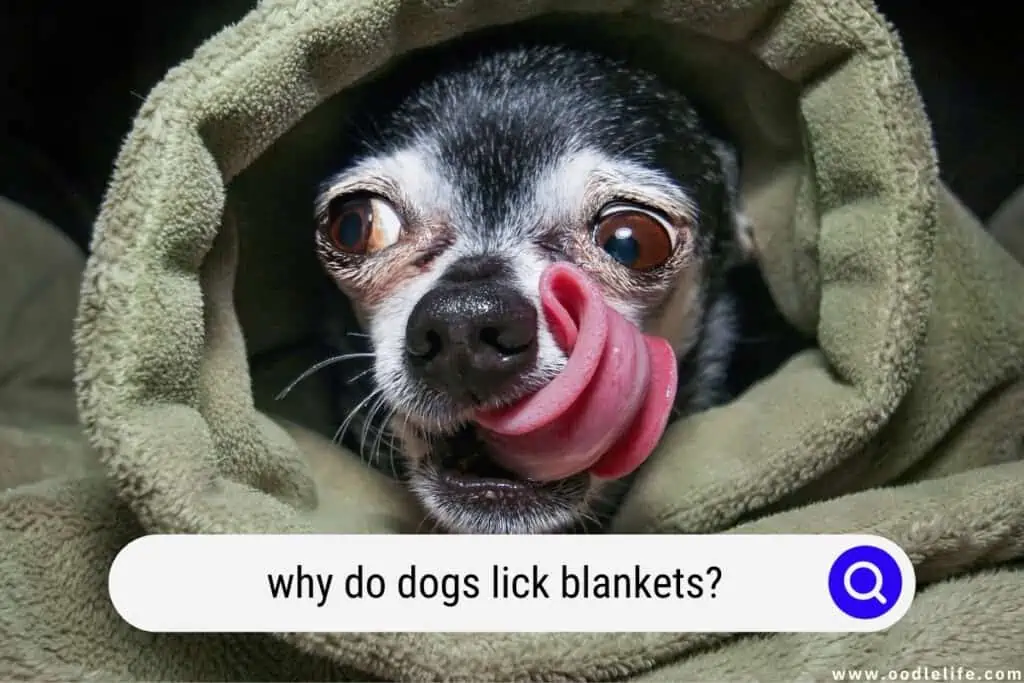
Canines lick as a natural instinct, but when it gets a tad excessive, some pet parents are understandably worried about the bizarre behavior.
In this post, we’ll examine why dogs seem to love licking blankets, whether it is theirs, or your’s, and what you can do about it.
What Causes Dogs To Lick Blankets?
Just like baby hoo-mans that seem to want to eat everything, a dog learns by taste and licks to understand its surroundings.
While being awed by the dog’s keen sense of hearing and its even more formidable sense of smell, we often forget that taste too, is how all living things learn. Don’t forget, we humans used to put everything in our mouths as children!
Your adorable doggo is no different. Puppies grow up being groomed and licked by their mother as a form of cleanliness and affection. This learned behavior becomes an instinct as the pup grows, manifesting itself later in life as the usual behavior of an adult dog.
While some licking is natural in dogs, excessive licking and chewing should be looked at by a medical professional. Some of the common reasons why dogs are all slobbery and licky-lick include:
They Enjoy It!
The best explanation for a dog licking your blanket would be that it simply enjoys doing so. When you sleep, you leave dead skin and cells in your bedding, which of course, smells very strongly of you, especially with a dog’s impressive olfactory receptors.
When dogs lick, their bodies release endorphins, the “feel-good” hormone. Dogs are happy and content when these hormones are released. They might also be missing you when you are away, and licking your blanket with your heavy scent on it is a way of them coping with mild separation anxiety.
Foodie Blanket?
Did you have some munchies while hunkered down with your blanket? Or managed to get some food particles on it? Dogs can smell a snack from a mile away and will zero in on any leftover food that you might have dropped on your coverings.
In addition, if you’ve split some kind of sauce or flavored liquid, you can bet that your pooch will find it.
Any food-lovin’ dog will happily lick your blanket for hours just for a tiny taste, and while this isn’t harmful, you might want to dust your blanket off if it has been collecting food scraps!
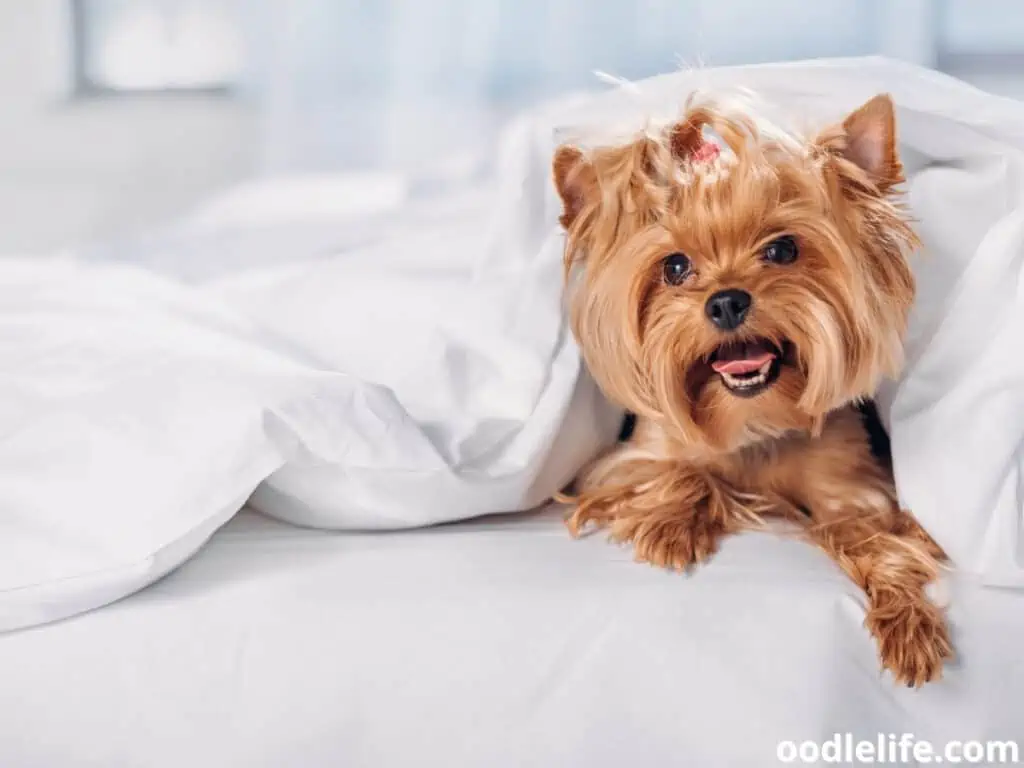
Anxiety
Obsessive behavior is one of the most significant indicators of anxiety, and excessive licking is no different.
Did you relocate recently, or are there any changes in your dog’s lifestyle? Dogs are creatures of routine and comfort, and any change, no matter how small, can cause some stress or anxiety, even in the most adaptable canines.
In addition, separation anxiety is something experienced at varying levels by the vast majority of dogs, happening mainly when they are kept separate from you and you spent long periods away. If your dog is alone during that time, you’ll have to provide it with interactive games and toys to stimulate his mind.
Separation anxiety is an extremely common condition in dogs that has to be managed. If left unchecked, it can escalate into severe behavioral issues that often result in the dog being given up. In addition, a dog suffering from severe separation anxiety is a miserable one, constantly insecure at being left alone and needing attention at all times.
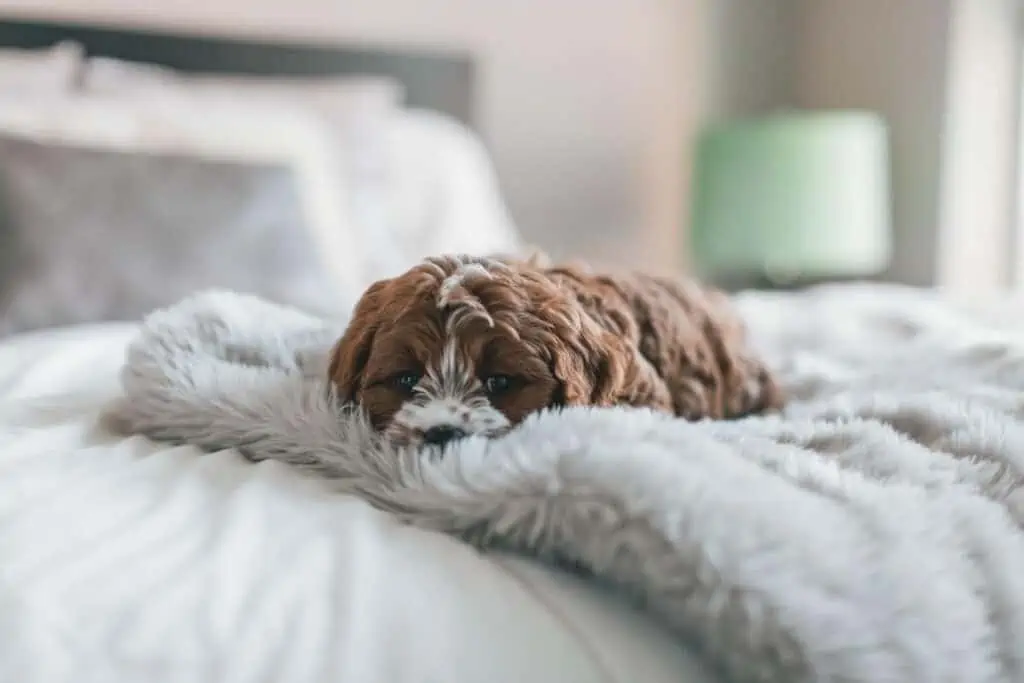
Vitamin or Mineral Deficiency
Dogs are susceptible to a number of vitamin deficiencies, and these can lead to serious health problems. For example, vitamin A deficiency can cause blindness, while vitamin D deficiency can lead to bone deformities. Vitamin E deficiency can cause neurological problems, and vitamin C deficiency can weaken the immune system.
Fortunately, these deficiencies can be easily prevented by providing your dog with a balanced diet that includes all the essential vitamins and minerals. If you’re not sure whether your dog is getting all the nutrients they need, talk to your veterinarian about dietary supplements.
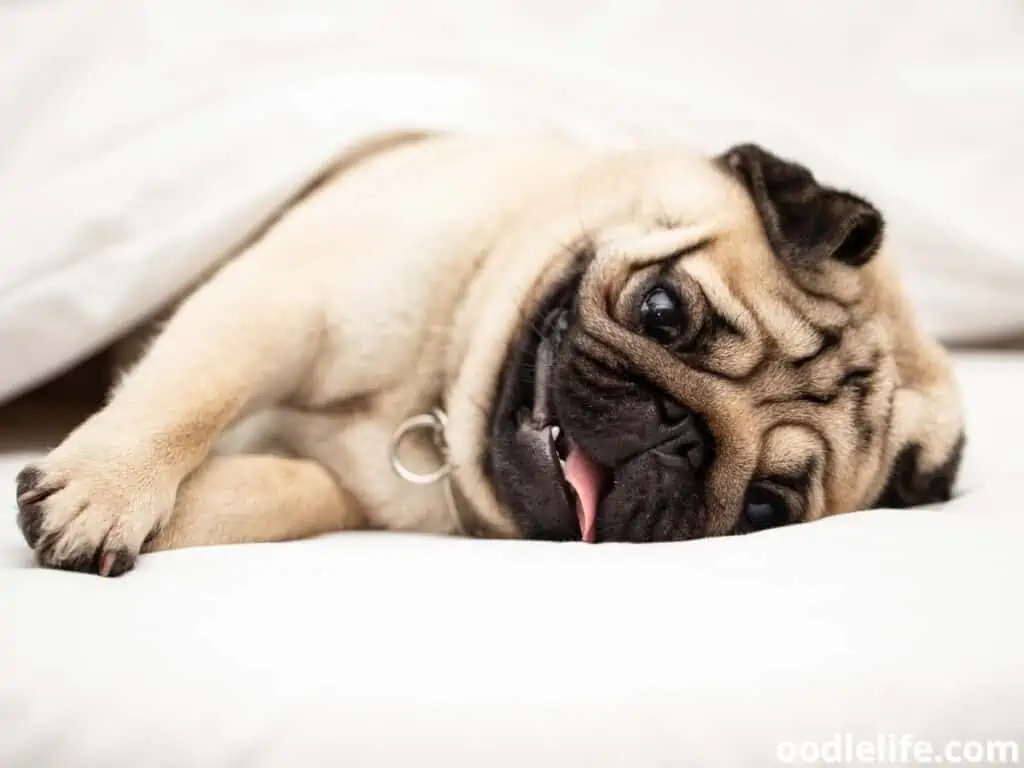
Nutritional Issues
Poor digestion is a problem with many dog breeds. In this case, licking excessively may mean that your dog is experiencing gastrointestinal discomfort or nausea.
Many dogs suffer from allergies related to corn, wheat, and soy products. Despite all of these problems, grains are often used as filling material in commercial dog food. You will probably notice excessive licking if your pet is eating something it is allergic to.
Home remedies will not alleviate an upset stomach significantly. If you suspect allergies, speak to your vet about an elimination diet and feed only natural, organic food that are non-GMO and grain-free.
Medical Issues
A bacterial or fungal infection can also be caused by excessive licking, which is not a good thing!
As your dog licks its skin, endorphins are released in its body, acting as a natural painkiller.
When your dog is infected, it is off to the vet for you. If an underlying condition is not treated properly in dogs, it may grow into something more serious that is difficult or impossible to treat. It is also important to observe your dog’s body for any lumps, lesions, or cuts.
How To Stop Your Dog From Licking The Blanket?
While not generally harmful, you might still want to stop your dog from licking your blanket. As much as you love your dog, it can’t be pleasant having a wet, sopping blanket every day covered in dog drool!
First, you’ll have to identify if the problem is medical or behavioral. If so, you’ll have to fix the underlying causes before trying to correct the behavior.
Discourage Licking The Blanket
Some dogs love to lick everything they can. While this might seem like a harmless behavior, it can actually be quite dangerous, like if your dog manages to ingest some fabric or fur from the blanket, potentially causing an obstruction in the gut.
Make sure that you’re providing plenty of chew toys and bones for your dog to gnaw on. This will help satisfy their need to lick while also keeping their teeth clean. You can also try using a bitter-tasting spray on objects that you don’t want your dog to lick.
The unpleasant taste will deter them from licking, but it won’t hurt them if they accidentally ingest a bit of the spray.
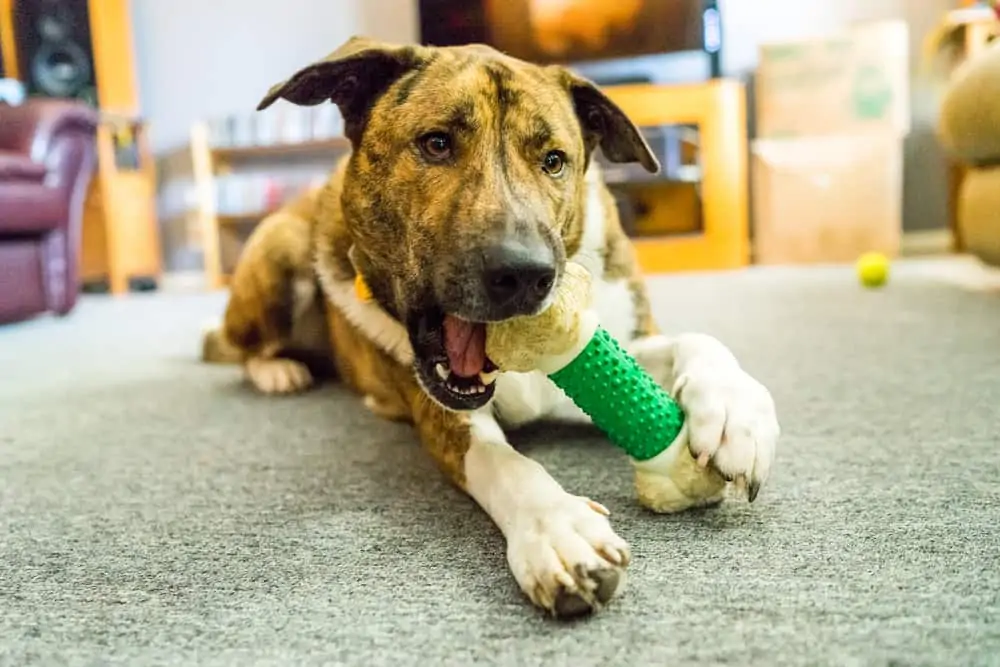
Ensure Adequate Exercise
Dogs are active creatures that need a lot of exercise to stay healthy. Unfortunately, many dog owners fail to give their furry friends the physical activity they need, and as a result, an under-exercised dog can exhibit anxious or stressed behaviors like compulsive licking.
Ensuring that your dog gets enough exercise is essential for their health and happiness. A daily walk is a great way to start, but you can also try playing fetch or frisbee in the park.
If you have a backyard, letting your dog run around off-leash is another great option. A tired dog is a happy one, and by getting enough exercise, your dog is more likely to be stimulated and balanced.
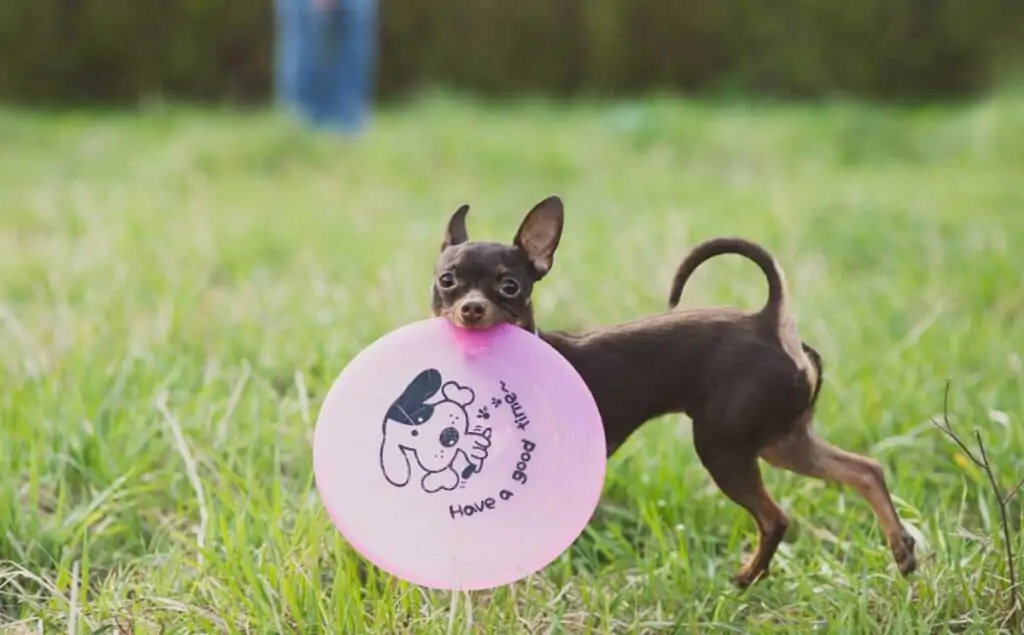
Socialize Well
Any dog parent will know the power of socialization. For one thing, it helps them to become more comfortable around people and other animals. This can make outings and trips to the vet much less stressful for everyone involved.
In addition, socialized dogs are generally better behaved and have an easier time learning new things. They’re also less likely to become anxious or depressed, which means they’ll be happier and healthier overall.

Redirect Your Dog To His Toys
When you catch your dog licking the blanket, firmly deliver a correction like a loud “no”, and redirect his attention to his own toys, praising lavishly when your dog takes the toy.
One of the best ways to redirect your dog’s attention to his own toys is by engaging in interactive play.
Not only will this provide your dog with much-needed exercise, but it will also give him a chance to bond with you. If you make interactive play a regular part of your routine, your dog will soon start to focus his attention on his own toys rather than your blanket.
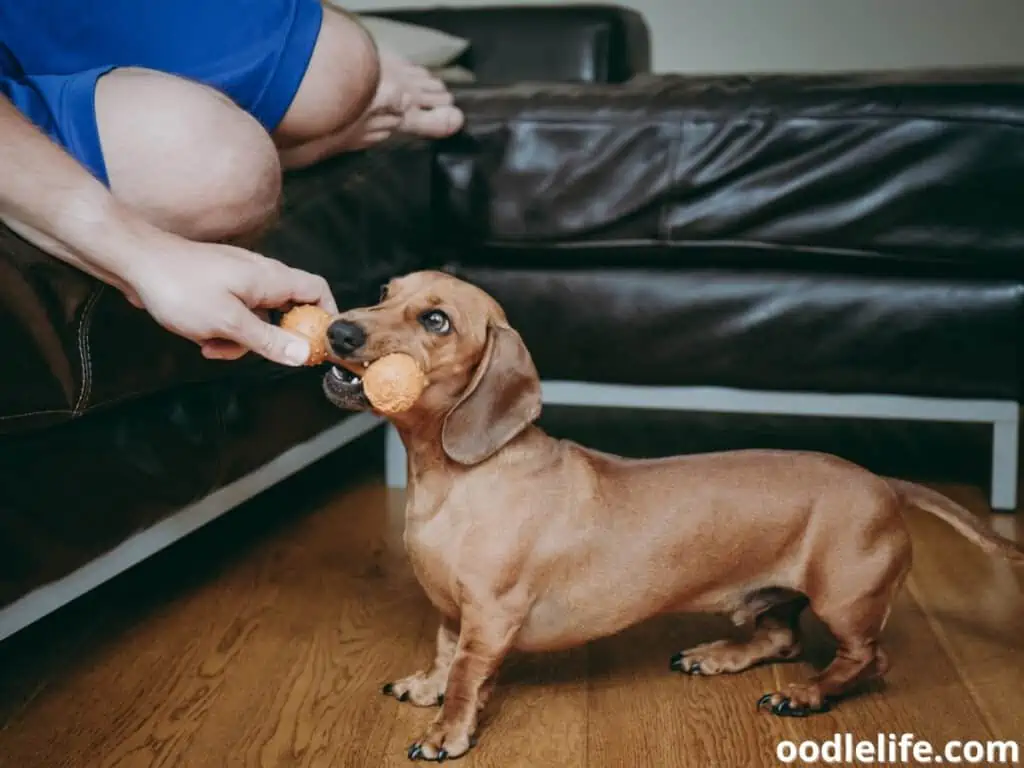
Final Thoughts On Why Dogs Lick Blankets
Dogs are naturally attracted to the scent of our blankets. After all, they smell just like us, and your dog finds comfort and safety in snuggling up with your blanket when you aren’t around.
Additionally, the act of licking itself is calming for dogs and helps to reduce stress levels. Of course, all things should be in moderation, so if your dog is obsessively licking your blanket, you might want to monitor him a little more closely to make sure that there isn’t a deeper underlying reason.
